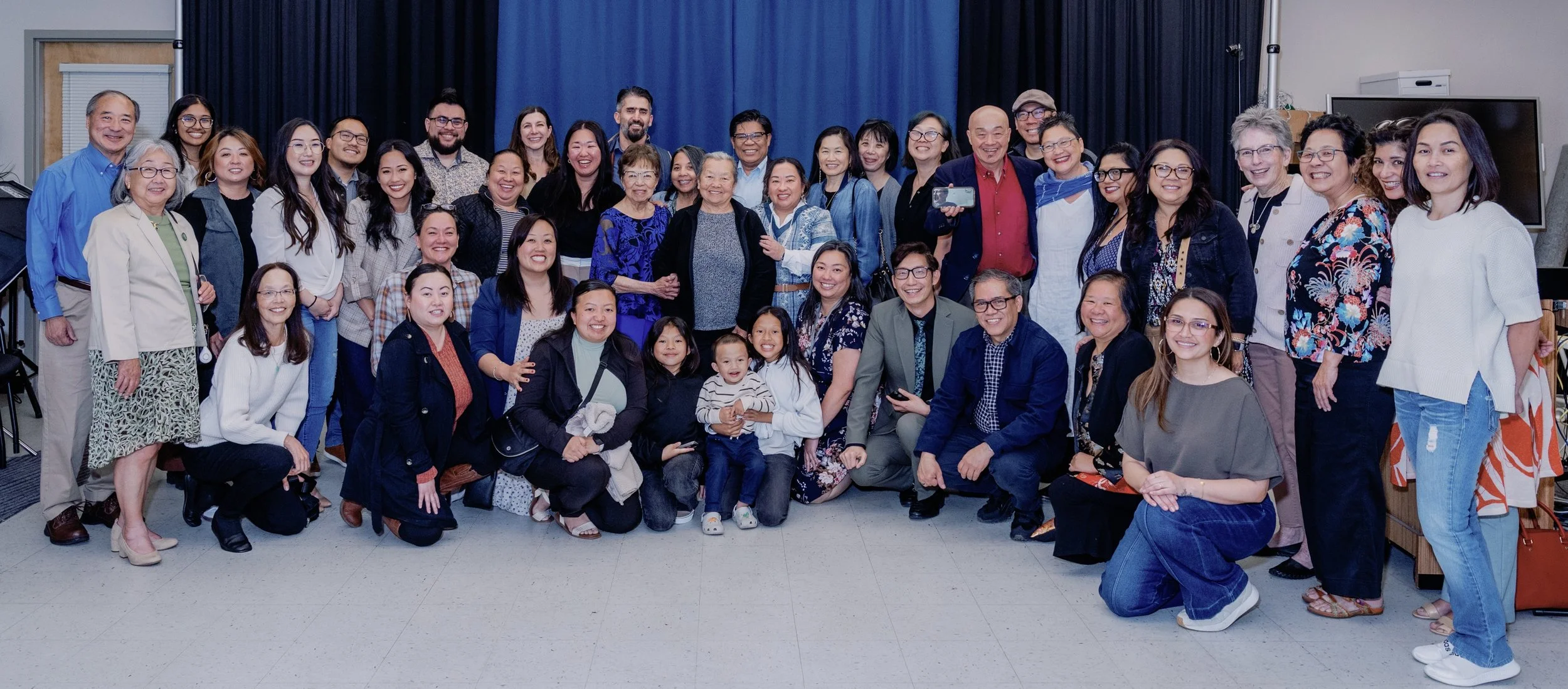The Census is about our Past and Future
/Many have come to understand that by participating in the Census, you are shaping the future – ensuring your community has the resources and representation it deserves for the next 10 years.
As the Deputy Director of Statewide Initiatives for the California Complete Count – Census 2020 Office, I have learned professionally how this aspect of the Census is critically important as there is funding tied to your Census participation.
However, while we look to our future, the Census is much more personal for me as it ties me to my past.
I am third generation Japanese American – a “Sansei.” My grandparents were considered “Issei,” having immigrated before 1924, and their resulting children were considered “Nisei.”
Much of my family’s history was a mystery to me, with anecdotes and stories passed down to me through my mother and aunties. I knew generally that my grandparents and parents moved back and forth between California and Japan, eventually settling for a time in Hiroshima at the start of World War II. Then, an event that deeply changed the lives of those in this province happened – a bomb that wiped lives, families and records away.
This history is sad and deeply tragic – it still impacts lives of the Japanese and Japanese Americans. For me, knowing this, there was a desire to acknowledge my past and learn more about them. I began to look through ancestry and Census records to retrace my family’s history in the United States.
According to ship records, my grandparents entered the U.S. in the 1920s through San Francisco, having come from Fukuyama in Hiroshima-Ken. Then, based on Census records, I traced their movements in Boyle Heights, Salinas, and San Francisco.
Based on what I have learned, there was an influx of Japanese immigrants to the U.S. in the early 1900s. Most of this was economically motivated since there was financial and social stagnation in Japan – many searched elsewhere for a better life. The U.S. was considered the land of promise.
As a Japanese American, I learned to be comfortable in both cultures, but I kept my Japanese “roots” through food (sukiyaki and gohan), visits with our relatives, some language and especially values.
This story is similar to that of many families – the language, culture and food may be a bit different, but the overall desire to improve the lives of their families led many to the U.S.
I was able to learn about my family through Census records since they are a snapshot in time, asking every home information about their household on April 1. Many families take advantage of the great record keeping that the Census data affords us all – they use popular online sites to retrace where and when their families came to the U.S. with the click of a button.
Please know though, if you participate in the 2020 Census, your personal information is kept safe and confidential. By law, the U.S. Census Bureau will not release personally identifiable information about an individual to anyone else until 72 years after it was collected for the decennial census.
After 72 years, the records are released to the public by the National Archives and Records Administration. For those who had family enter the U.S. in the 1940s, the National Archives most recently released those records in April 2012.
As we learn from and about our past, I implore you to take the Census.
By participating, we can set forth a roadmap for the future of us all.
The time is now – take the Census today. There are three easy ways to fill out the form:
Online at my2020census.gov
By phone at 844-330-2020 (a list of in-language options is available here)
By mail if you received a paper form
I have since been able to visit some of the homes my family lived in before I was born, taking road trips to Japantowns in Salinas, San Francisco and Los Angeles. Though I may not come to know what happened between each of the decennial Censuses my family participated in, I was able to know where my family was every 10 years, where they lived and how many lived together.
As much as the Census is about our future, it is also about recognizing and honoring our past. Please take the Census so that your future generations can learn more about you.
From the Nikkei West, September 25, 2020
Yumi Sera is the Deputy Director of Statewide Initiatives, California Complete Count – Census 2020 Office and a member of the APIs Rise Fund.

